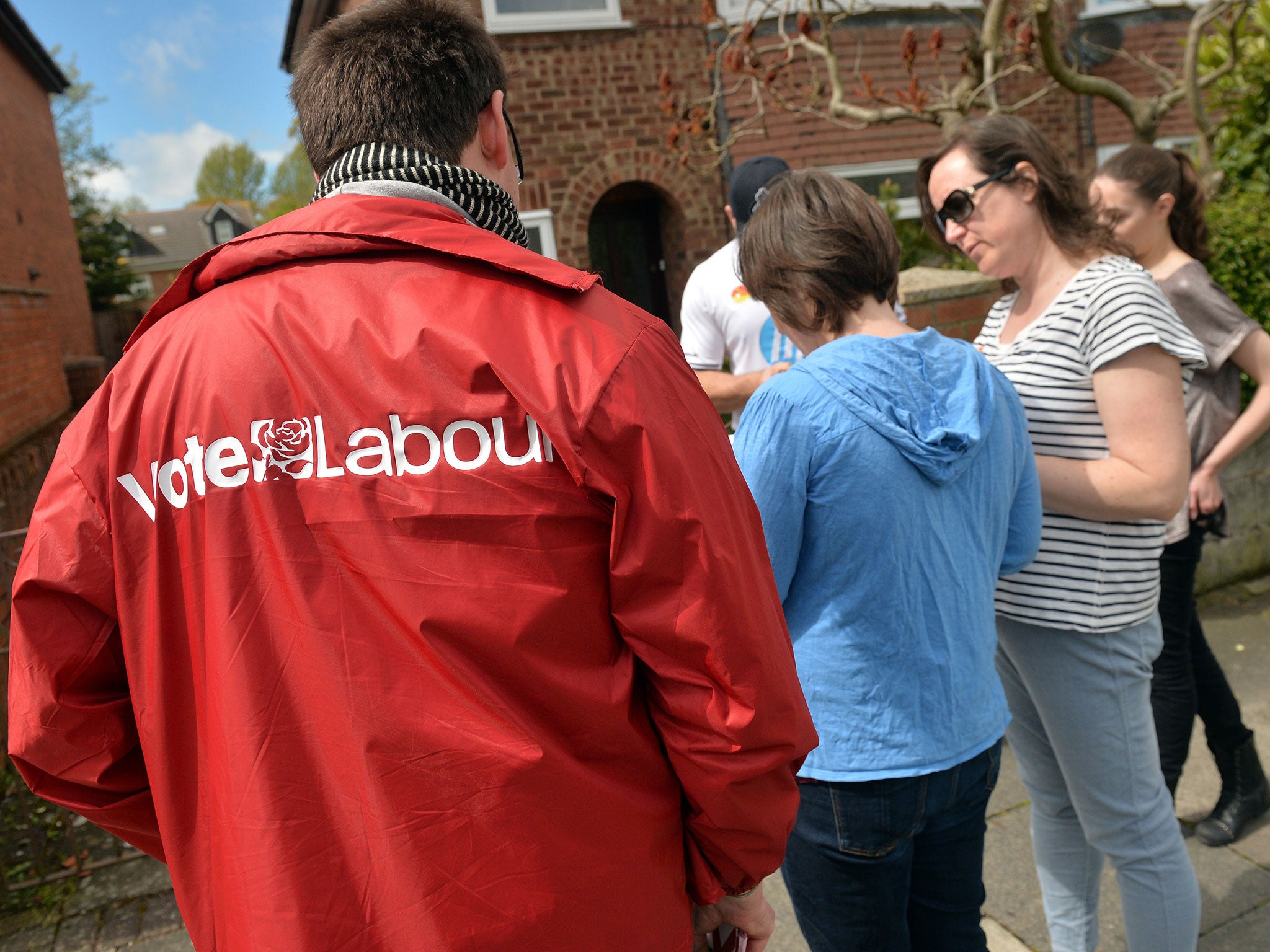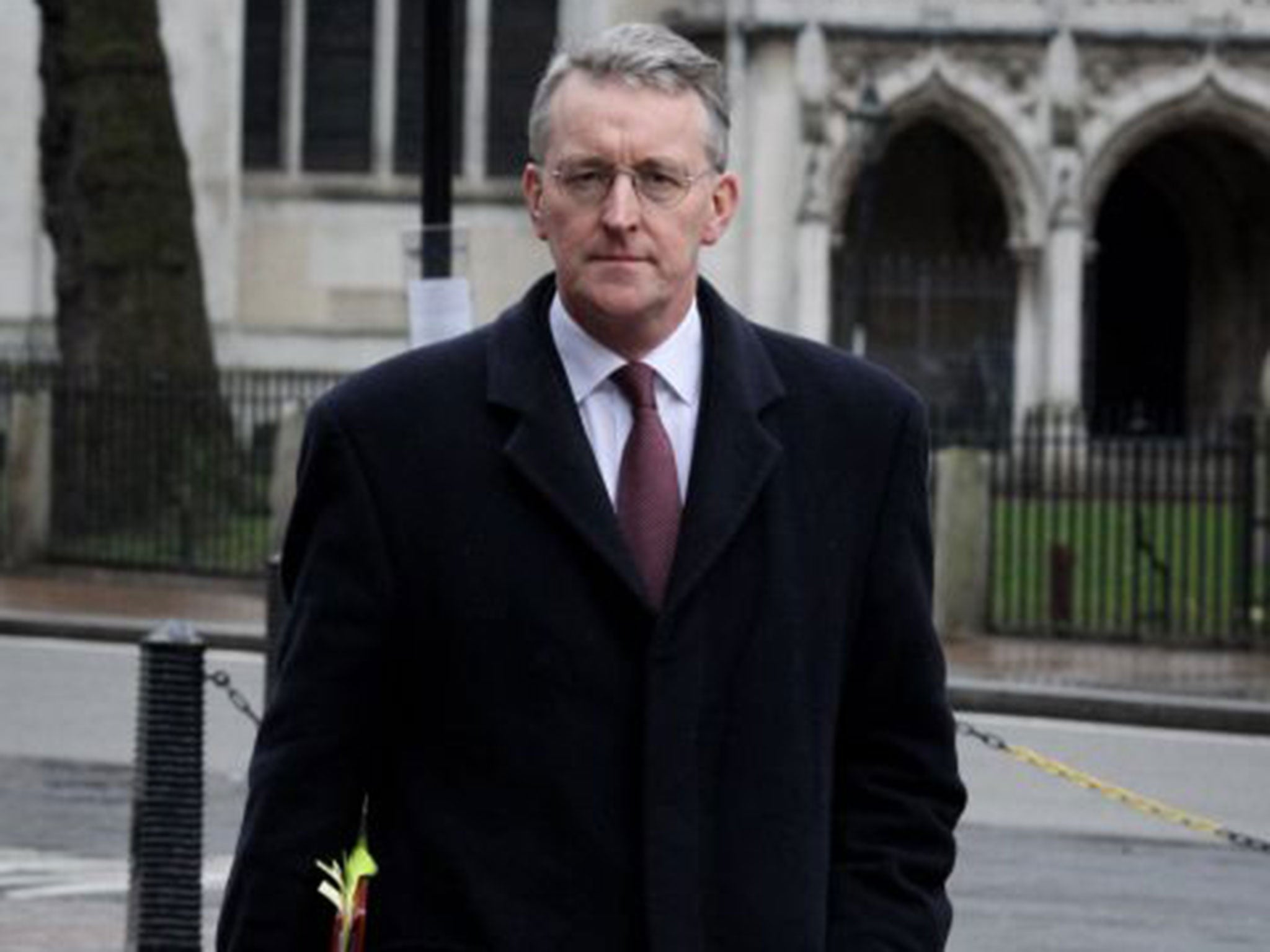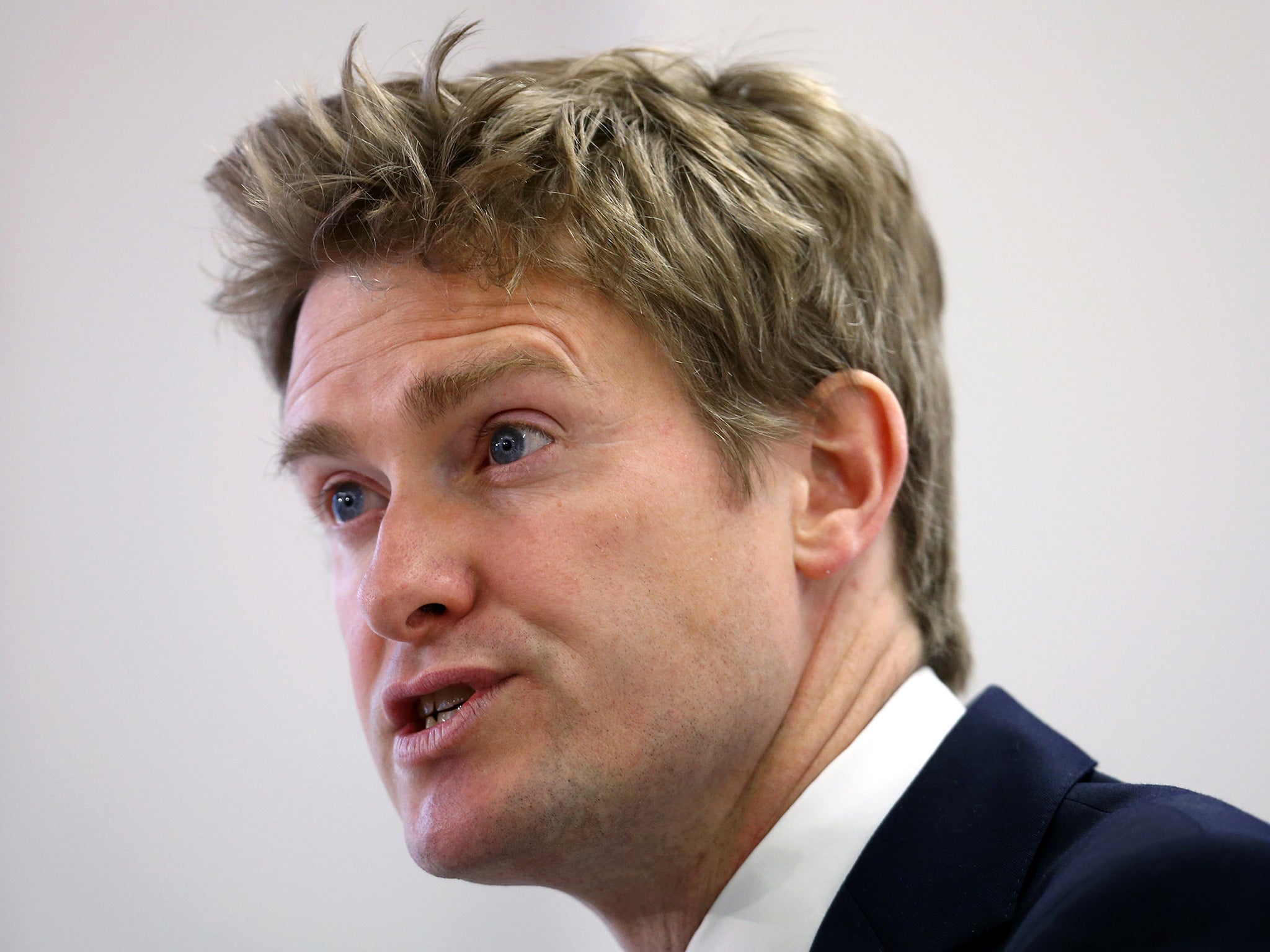Jeremy Corbyn critics ‘fear bloodbath’ after changes to constituency boundaries
Exclusive: Shake-up which will reduce number of MPs from 650 to 600 at the 2020 general election

Ten prominent critics of Jeremy Corbyn face a fight to keep their Commons seats because of changes to constituency boundaries that will give left-wing allies of the Labour leader the chance to oust MPs.
The Boundary Commission will start work next month on a shake-up which will reduce number of MPs from 650 to 600 at the 2020 general election.
Officials in all the political parties expect the Commission to stick very closely to the map it published in 2013, when its implementation was delayed by the Liberal Democrats. Under the proposals, more than half the UK’s constituencies will see major changes.
Although Mr Corbyn insists he does not want to see Labour MPs deselected, the fate of many of his internal critics will be in the hands of party members who will choose the candidates when new seats are created. Party membership has almost doubled to 388,000 since last May’s general election, with many of the recruits attracted by Mr Corbyn. Some Labour MP fear a return to the reselection battles which saw moderate MPs deselected by left-wingers in the 1970s and 1980s. One said: “The boundary review is a gift to the left and a nightmare for us. A growing number of us fear a bloodbath.”

High-profile MPs who will have to seek nomination in new or substantially redrawn seats include Hilary Benn, the shadow Foreign Secretary, who clashed publicly with the Labour leader over UK air strikes in Syria; six former shadow ministers at odds with Mr Corbyn --Chuka Umunna, Tristram Hunt, Chris Leslie, Emma Reynolds, Liam Byrne, and Stella Creasy--Vernon Coaker, a pro-Trident Shadow Cabinet member; Alison McGovern, chair of the Blairite Progress group who resigned from a party review into child poverty last weekend in an anti-Corbyn protest and Mike Gapes.
The shake-up, designed to produce constituencies with roughly the same number of electors, will give the Conservatives an overall boost of about 20 seats. If the proposed new boundaries had been used in last May’s election, the Tories would now enjoy an overall majority of 44 rather than 12, according to UK Polling Report. The Conservatives would have won 322 seats (nine fewer in a Commons with 50 fewer MPs); Labour 204 (28 fewer), the SNP 50 (wiping out Labour in Scotland) and the Liberal Democrats just four instead of eight.
These figures show how the new boundaries will make the mountain Labour needs to climb even steeper. On 14 January, the party promised not to bury the findings of its inquest into its defeat last May, which Mr Corbyn received last November. According to the BBC, the study does not conclude that Labour policies were too left-wing but does blame the party’s failure to tackle “the myth” that it was responsible for the financial crash; failure to build trust on the economy; failure to communicate on immigration and benefits; Ed Miliband being seen a weaker leader than David Cameron and fear of a minority Labour government propped up by the SNP.
A Labour spokeswoman said: “The formal process of considering the Learning the Lessons report is in its final stages and will conclude next week when it is presented to the relevant committee of the National Executive Committee. The Labour Party will then make the report public.”
All parties will be affected by the boundary review. Mr Cameron has promised that no sitting Conservative MP will be “left behind” and will switch to constituencies where the Tory MP retires. There had been fears that women ministers including Amber Rudd, Priti Patel and Tracey Crouch could lose their place in the Commons.
However, Mr Cameron’s pledge could make it very hard for a would-be Tory MP to find a winnable seat in 2020. Senior Conservatives are worried that the shake-up will set back the party’s drive to secure more women MPs. The Tories have 68 women MPs out of 331, while Labour has 99 women out of 232.
The proposed new map is due to be published in September. The final proposals will need the approval of both Houses of Parliament in 2018, after which selection contests would begin.
To cut the size of the Commons and bring seats within five per cent of a national average of about 77,000 constituents, the number in England is likely to be reduced from 532 to about 499; in Scotland from 57 to 52; in Wales from 40 to 29 and in Northern Ireland from 18 to 16. These figures exclude four island seats exempt from the formula– the Western Isles; Orkney and Shetland and two for the Isle of Wight instead of the current one.
These forecasts are based on the 46.2m people on the electoral register at last May’s election. The Commission will base its new map on the number on the roll last month. Some academics believe this will further disadvantage Labour because of the switch from household to individual registration. The Government rejected the advice of the Electoral Commission to delay the changeover by another year. Labour claims that about 1.9m names removed from the list will not be included in the Boundary Commission’s calculations even though they could be restored to the register later. The Tories insist the register is being “cleaned up” and was inaccurate because people had moved or died or were listed twice.
Labour has accused the Tories of using the review to tip the electoral scales in their favour. But the Tories argue that constituencies should roughly the same number of people and that the current map means that Labour heartlands such as the big cities and Wales are over-represented, while areas like the south of England with a rising population are under-represented. They say that removing 50 MPs will save taxpayers about £12m a year.
Boundary issues: MPs under threat
* Hilary Benn, shadow Foreign Secretary
Current constituency: Leeds Central (majority 16,967)
Seat would disappear, divided among four others
Dubbed "Bomber Benn" by left-wing activists angry at his support for air strikes in Syria
* Chuka Umunna, former shadow Business Secretary
Current constituency: Streatham (majority 13,934)
Seat would be split between into new Clapham and Streatham and Brixton constituencies.
Entered Labour leadership race last May but withdrew shortly afterwards
* Tristram Hunt, former shadow Education Secretary
Current constituency: Stoke Central (majority 5,179)
Seat would be abolished, divided among the two remaining Stoke seats, currently held by Labour MPs Rob Flello and Ruth Smeeth
TV historian seen as potential future leader by some Blairites
* Chris Leslie, former shadow Chancellor
Current constituency: Nottingham East (majority 11,894)
Would be split roughly equally between new Nottingham East and West seats
Launched first Labour attack on "Corbynomics"

* Vernon Coaker, shadow Northern Ireland Secretary
Current constituency: Gedling (majority 2,986)
Seat would be abolished. 60 per cent of electorate would switch to new Nottingham East seat, setting up possible selection battle with Chris Leslie
Will fight Mr Corbyn's plan to oppose renewal of Trident nuclear weapons system
* Emma Reynolds, former shadow Communities Secretary
Current constituency: Wolverhampton North East (majority 5,495)
Seat would disappear, divided among three seats in Wolverhampton and Walsall
Criticised Mr Cameron over his links with the Stop the War Coalition
* Liam Byrne, former Chief Treasury Secretary
Current constituency: Birmingham Hodge Hill (majority 23,362)
Seat would disappear, with about half of electorate transferring to Birmingham Ladywood, held by Labour MP Shabana Mahmood
Has set up Red Shift group, which argues that Mr Corbyn needs to create a new brand
* Alison McGovern, chair of Blairite Progress group
Current constituency: Wirral South (majority 4,599)
Seat would disappear and be split three ways
Resigned from party review on child poverty in protest at Mr Corbyn's Shadow Cabinet reshuffle
* Stella Creasy, former shadow Home Office minister
Current constituency: Walthamstow (majority 23,195)
Seat would be split 50-50 between Chingford and Leyton constituencies
Has already faced left-wing protests outside her constituency office for backing bombing in Syria
* Mike Gapes, former chairman of Foreign Affairs Select Committee
Current constituency: Ilford South (majority 19,777)Seat would be abolished and split four ways
Sharp critic of Mr Corbyn on foreign and defence policy
Join our commenting forum
Join thought-provoking conversations, follow other Independent readers and see their replies
Comments
Bookmark popover
Removed from bookmarks